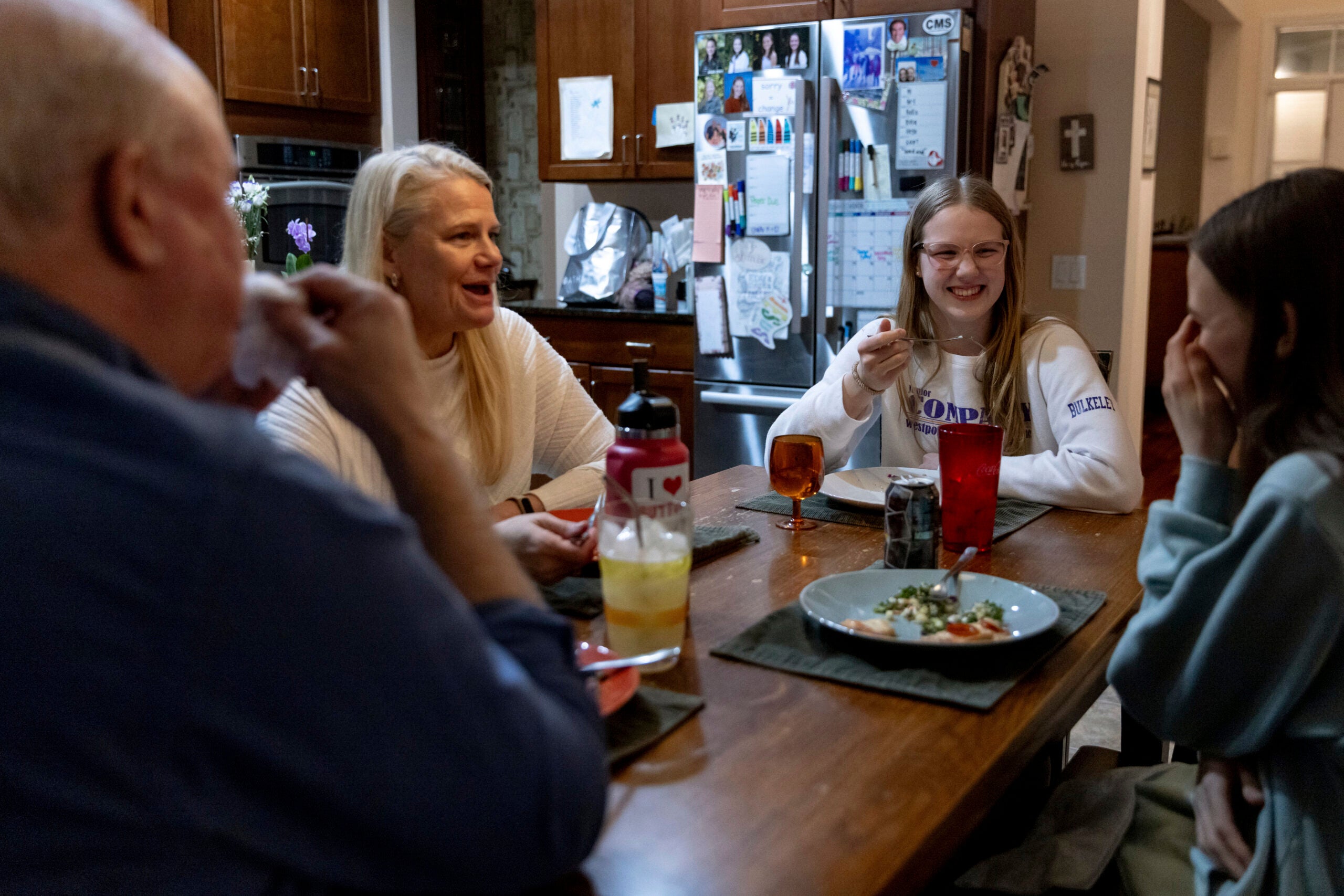Ever start a new exercise program, or perhaps a new diet? How long does it last? A month, a week, a day?
Maybe you never even started it — you thought about it, but when it came time to put the pedal to the metal, it just didn’t happen.
We all do this all the time. We get on the wagon of good health and then slide off when the going gets a bit rough.
Stay informed on the latest news
Sign up for WPR’s email newsletter.
I had a patient in my office the other day who needed to exercise — both to lose weight and to gain back strength after a hip replacement. She told me every time she had started an exercise program in the past, she failed within a few days. Her question was what should she do, what might increase her odds?
A new study published in the American Journal of Health showed how exercise is a team sport. I’m not talking about exercising as a team but teaming up with others to improve your efforts. That’s different.
Researchers recruited nearly 300 employees of a mid-sized company, challenging them to walk 7,000 steps a day and dividing them into groups.
If you’ve ever worn a pedometer, a FitBit, or my favorite activity monitor, a MisFit (I love the name, by the way), you know 7,000 steps a day is an appropriate challenge. Yes, when you’re young and have the time you can hit 10,000 steps a day with the blink of an eye, but try going to work at a sedentary job and also managing household responsibilities and you’ll immediately see that 7,000 is about right.
Everyone in the challenge was told how they were doing and how their team was doing throughout the day. For the first three-month period, if their team got to 7,000 steps, everyone was entered into a lottery with a 1-in-5 chance of getting $35 and a 1-in-100 chance of getting $350. If their team didn’t make the grade, they didn’t enter the lottery.
For the second three-month period, participants still got the feedback on how their team was doing, but no financial incentive.
Researchers found the highest step totals were when the financial incentive was in play, with about 50 percent of the people hitting the 7,000-step mark. When the incentive was dropped, the scores dropped, too — only one in three were hitting the goal.
Still, 33 percent isn’t bad when you look at exercise compliance. It’s usually down in the single-digit range.
Last year, I wrote about another study involving the team concept — it had to do with smoking. When two people decide to quit together, the success rate nearly quadruples. And diet and weight-loss studies show the same thing: Joining with a friend or relative can give you better results.
The take-home message I find fascinating about this latest study is that it uses smartphone technology combined with smart-device technology to give us instant feedback on how we’re doing.
I was a psychology major in college. One thing I learned over and over again is immediate feedback is better than delayed feedback. As parents, Penny and I learned the same things teaching our kids — telling them when we were pleased (or not) with what they were doing was better if we did it right after the event.
My spin: Exercising, eating right or quitting a bad habit such as smoking works best if you do it with someone else. And getting immediate feedback every day also helps you stay on track to stay well.
Wisconsin Public Radio, © Copyright 2025, Board of Regents of the University of Wisconsin System and Wisconsin Educational Communications Board.





